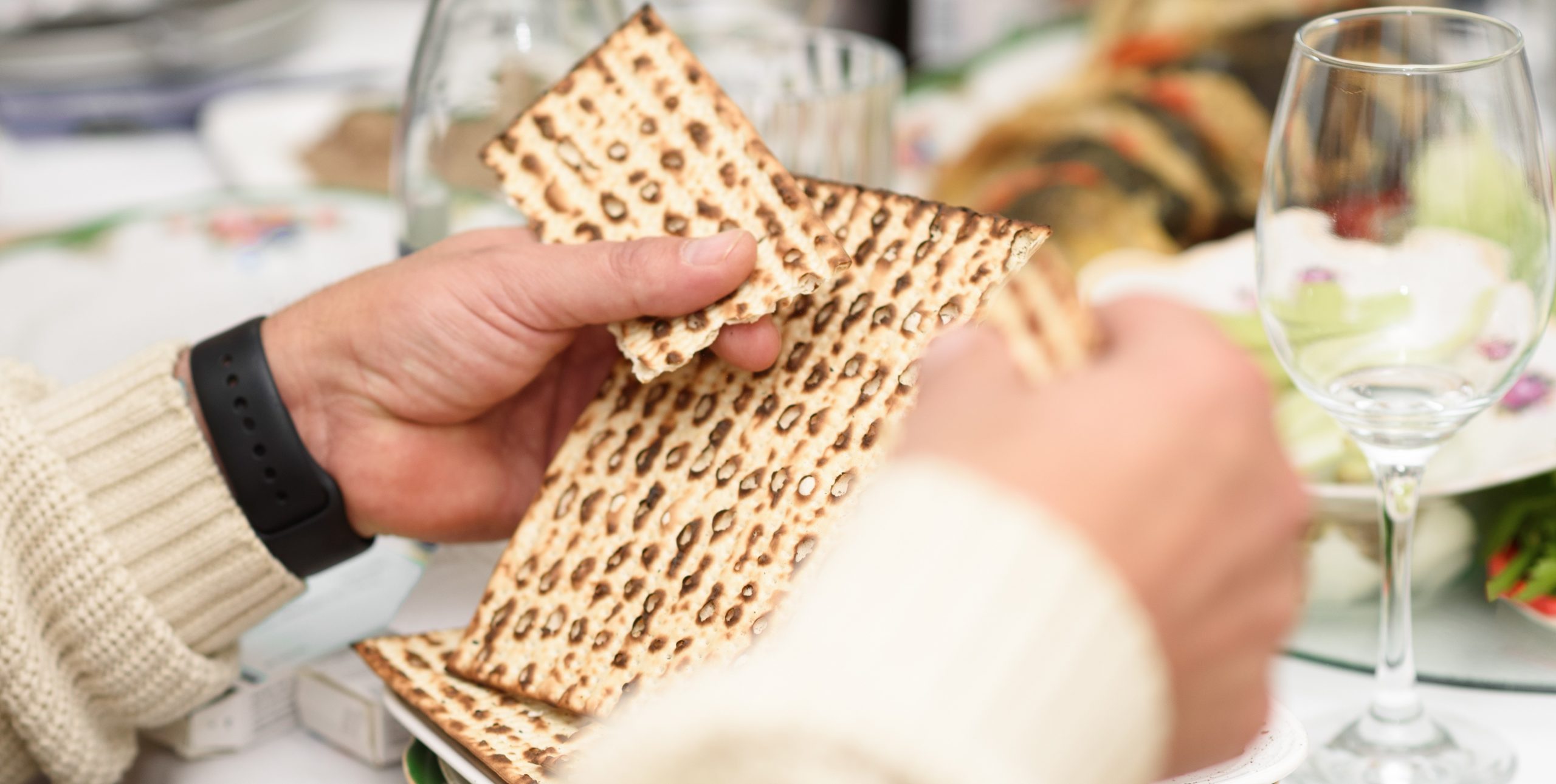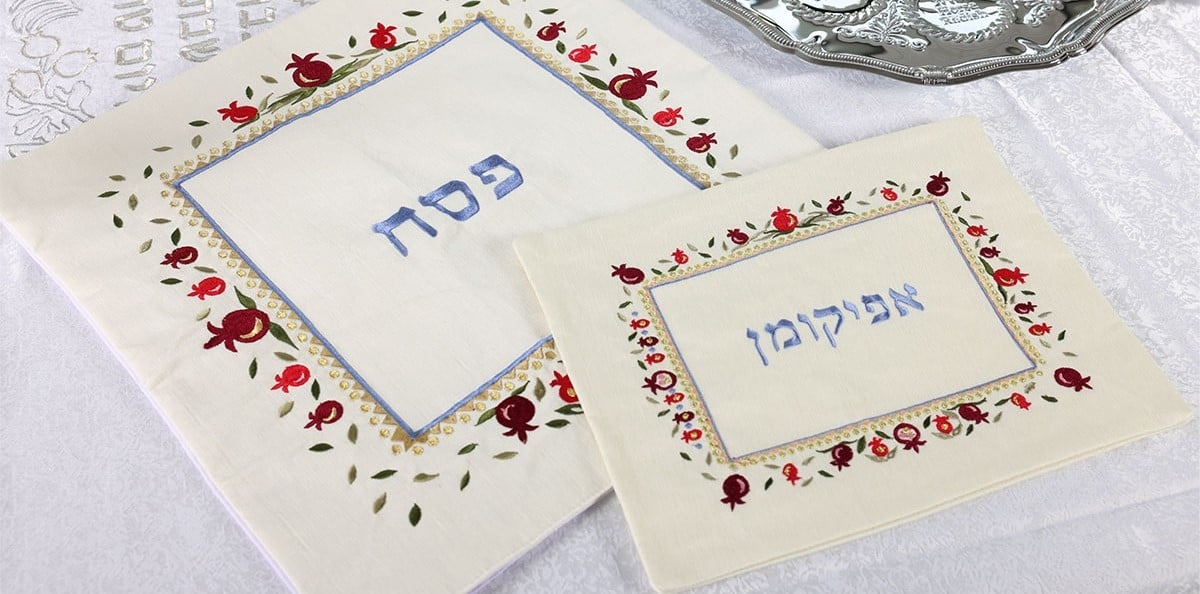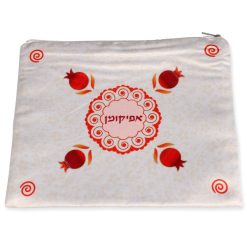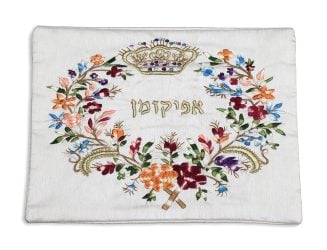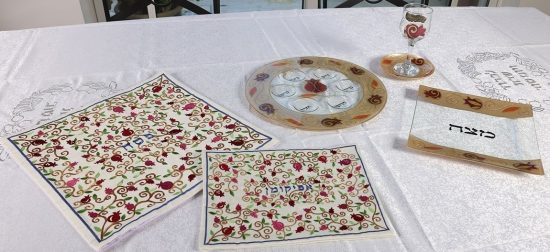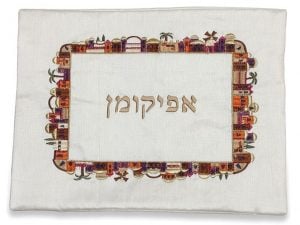
A key component of the Passover Seder, and one particularly beloved by children, is the hiding and subsequent searching for the afikoman. But what is the meaning behind this quirky tradition? What is the afikoman, and why do we put it in an afikoman bag and hide it?
All About the Afikoman
The afikoman is a piece of matzah that is broken off during one of the early stages of the Passover Seder (the famous ceremonial dinner at the beginning of Passover). It is set aside to be eaten at the end of the meal as dessert, often covered with a cloth or put into a textile pouch known as an afikoman bag.
According to the Talmud, the afikoman is supposed to be a substitute for the Passover sacrifice that, during the times of the Holy Temple, every family was responsible for on the eve of the holiday.
The reason it’s eaten at the end of the Seder is so that we end the meal with a piece of matzah and it remains the last taste in our mouths.
The Talmud actually forbids the eating of anything else once the meal is finished with the afikoman. In fact the name “afikoman” likely comes from a Greek term for either “dessert” or “after-dinner entertainment.”
Hiding the Afikoman
There is a tradition to wrap the afikoman in a napkin and put it away or hide it until dessert time, and eventually a custom emerged of putting it in a dedicated afikoman bag or pouch. The bag makes it easier to hide the afikoman while preventing it from crumbling or making a mess.
Many afikoman bags are beautifully decorated, adding elegance and a special aesthetic touch to one’s Passover celebrations, in line with the Jewish tradition of beautifying our commandments.
Many Jewish families have a custom of having one person hide the afikoman somewhere in the home at the beginning of the night, and having the children of the family search for it. Sometimes the children “steal” the afikoman and hold it for ransom, which is where the practice of giving an “afikoman gift” in exchange for the afikoman came from.
Whether your family has a custom of giving afikoman gifts or not, hiding and searching for the afikoman is a fun practice that gets the whole family engaged and participating in the Seder!
You can make the afikoman portion of your Seder even more special with an artistic afikoman bag right from our store, along with all the other Passover Judaica and gifts you’ll need.
Adorn your afikoman and get your whole family excited about the Passover Seder with a gorgeous afikoman bag, lovingly crafted in the Land of Israel.
